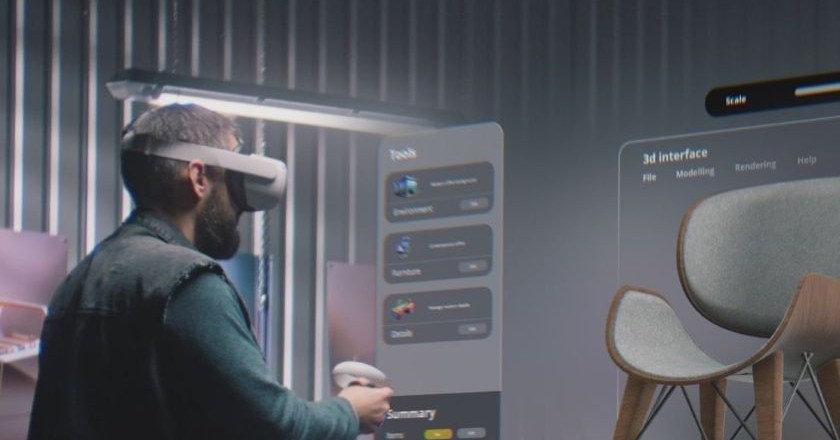Think about your best sales reps. Now, what if every sales rep could be just as effective? With the right tools, they can tap into the same strategies that top performers use.
In 2025, retail sales reps have shifted from simply pushing products to becoming trusted advisors who guide customers through every step of their shopping journey. Customers expect a more tailored experience, and that means sales reps need tools that help them deliver on those expectations—fast, accurately, and with the right personal touch.
To meet the growing demands of today’s consumers, store employees are relying on advanced AI tools for sales reps that simplify their workflow, streamline customer interactions, and provide real-time insights into inventory and product availability. These tools help them deliver quicker, more relevant recommendations, creating a shopping experience that feels both effortless and personal.
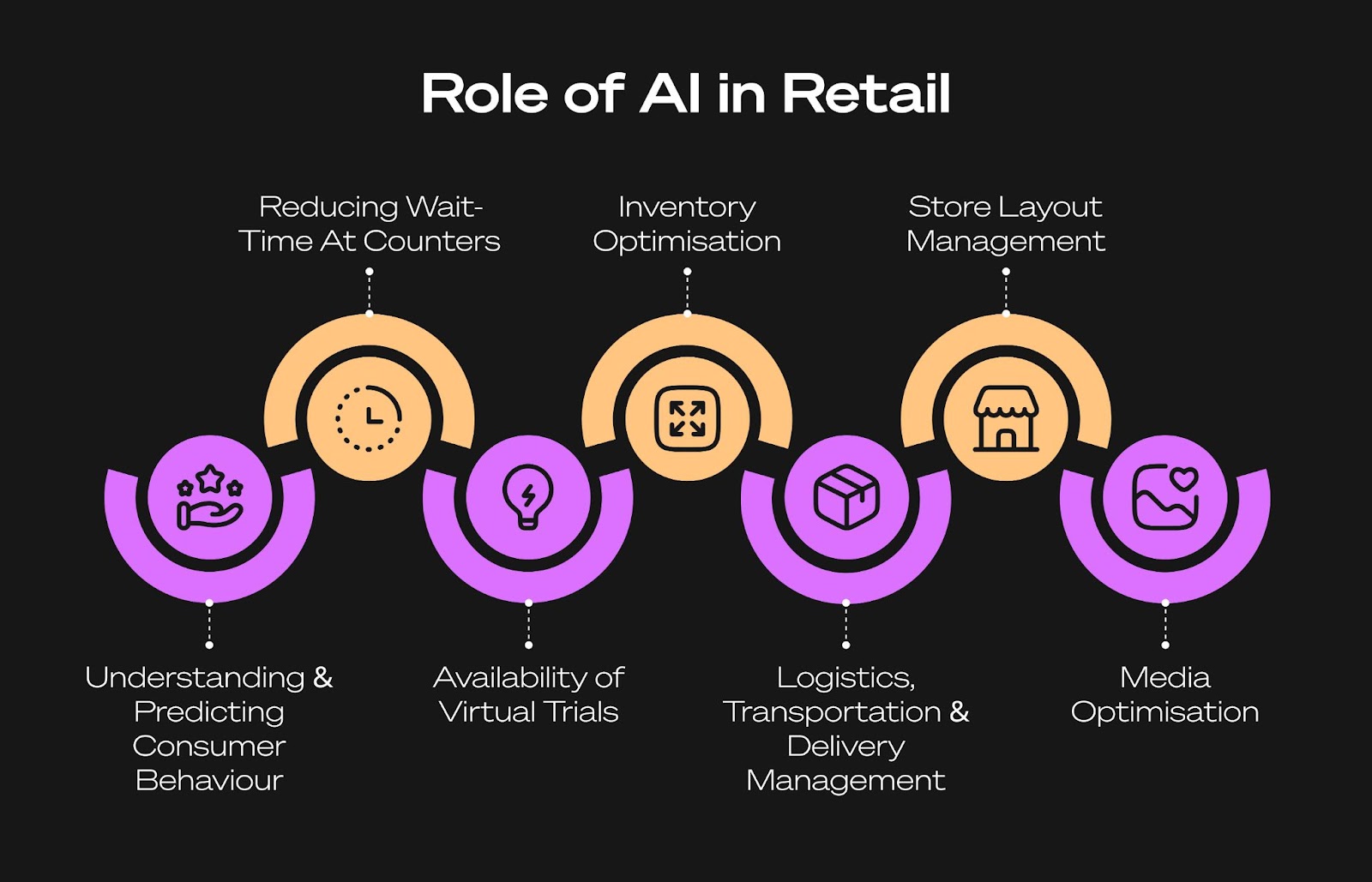
The Tools Helping Retail Sales Reps Work Smarter Every Day
As the retail environment becomes more complex, sales reps need tools that streamline their workflow. Let’s look at the tools that make their day-to-day tasks more efficient.
Top Tools Sales Reps Are Using in 2025
Sales reps in retail now rely on a mix of tools that help them work smarter, not harder. From mobile apps that streamline communication to platforms that offer deep insights into customer behavior, here’s a look at the tools helping sales reps optimize their efforts and close more deals:
- Evoneer's AI Assistant: An AI chat tool that enables sales reps to instantly access product availability and make tailored recommendations while engaging with customers.
- Salesforce Einstein: Helps sales reps with smart lead scoring and automates follow-ups, allowing them to focus on high-value prospects.
- Shopify POS: An integrated point-of-sale system that helps sales reps manage in-store transactions while syncing with inventory data, ensuring product availability is always up-to-date.
- Roomle: A 3D room planning tool that assists sales reps in helping customers visualize furniture in their home before purchasing.
- TradeGecko: Inventory management software that helps store reps keep track of stock, manage orders, and streamline operations across online and in-store platforms without losing track of products.
These tools are tailored to making sales reps’ jobs easier while offering customers a more personalized and engaging shopping experience.
Using AI to Provide Real-Time Product Information
Evoneer’s AI Assistant is revolutionizing how sales reps interact with customers by giving them real-time, actionable insights at their fingertips. Unlike traditional systems that require waiting for manual updates or relying on memory, Evoneer's AI provides instant access to detailed product information, pricing, availability, and more—directly on the sales floor.
By simply typing in product identifiers or model numbers, sales reps can instantly access the information they need to provide personalized service. Whether it’s recommending complementary items, offering tailored discounts based on customer preferences, or providing the most up-to-date inventory status, Evoneer's AI Assistant ensures that your team can always engage with customers in the most informed and efficient way possible.
For example, imagine a customer asking for the perfect sectional sofa to match their living room. With Evoneer's Assistant, the sales rep can immediately offer a range of suggestions, showcase fabric options, and check availability—all within seconds, right in front of the customer. This level of real-time personalization elevates the shopping experience, increases sales, and leaves customers feeling valued and understood.
How AI Helps Sales Reps Close More Deals and Save Time
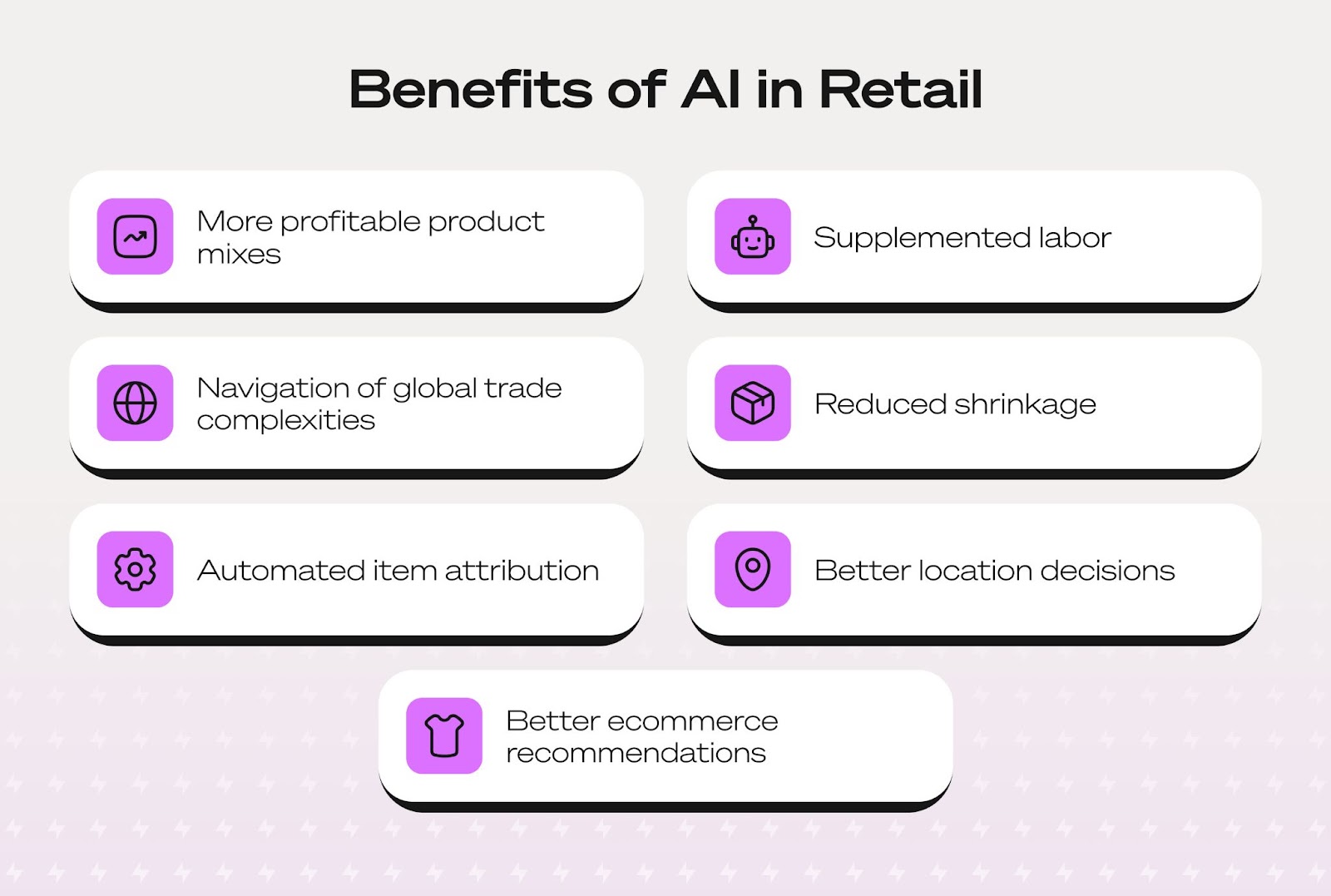
Sales reps are at their best when they’re connecting with customers. AI in retail helps by handling the backend work, giving reps the time and tools they need to close more deals.
Automating Routine Tasks for More Focused Selling
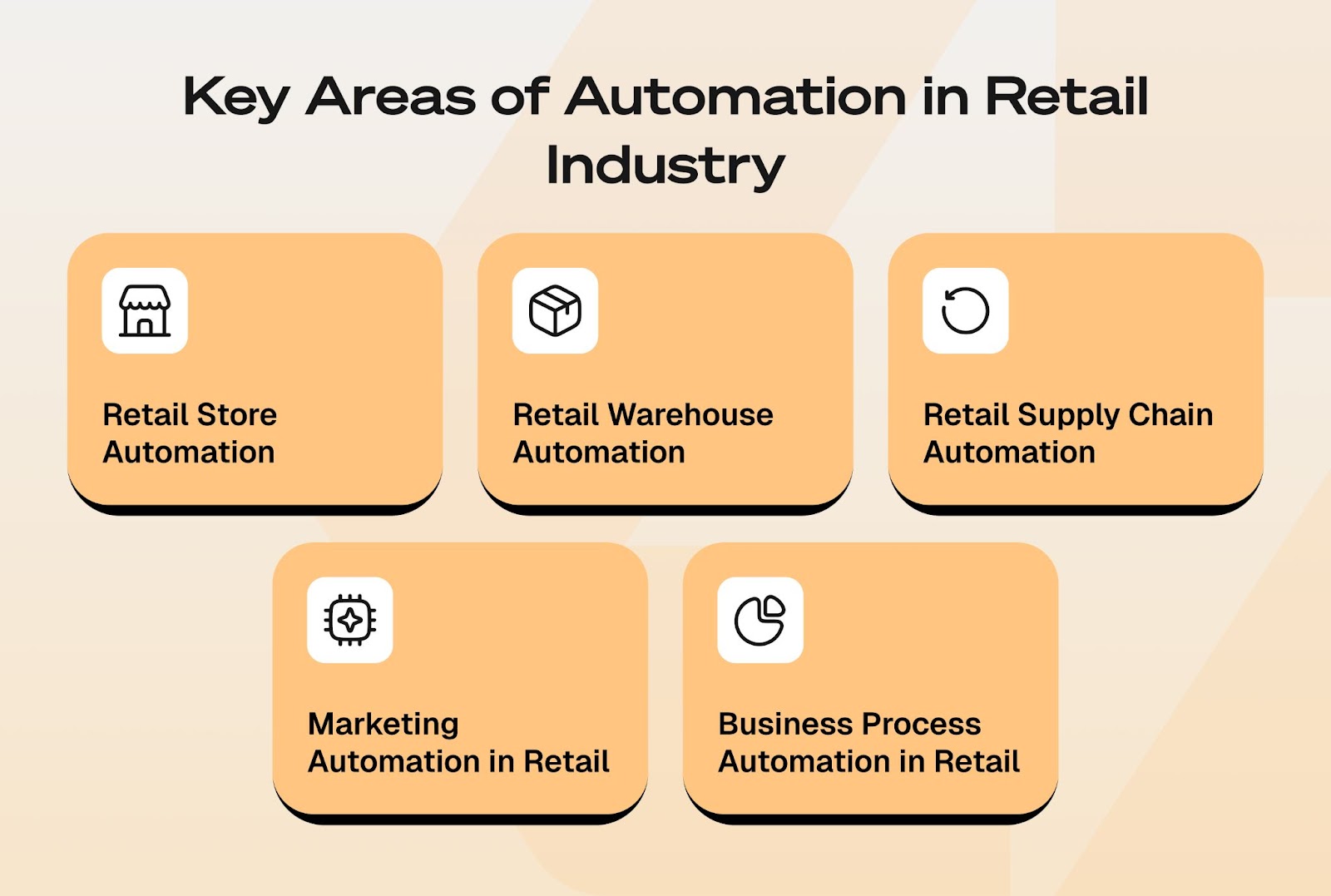
Sales reps spend a lot of their time handling the repetitive tasks that come with managing customer data, sending follow-up emails, and scheduling appointments. While important, these tasks can detract from the real work of building relationships and closing sales.
AI in retail can help automate these routine tasks, freeing up sales reps to focus on what matters most: engaging with customers. For example, automated systems can send follow-up emails based on customer interactions, ensuring no opportunity is missed. Personalized product recommendations can be sent out automatically, tailored to each customer’s preferences and behavior. And scheduling product demos or appointments becomes a breeze, thanks to automation.
With tools like Evoneer’s AI Assistant, sales reps can further streamline their workflow. Instead of spending time manually looking up product information or answering repetitive questions, they can access all the details they need in real time—right at their fingertips. This leaves more time for sales reps to focus on building relationships with customers and guiding them to the perfect products, ultimately driving more sales and improving the customer experience.
Using AI to Improve Inventory and Product Availability
One of the most frustrating issues sales reps face is not having the right product available when a customer is ready to buy. It’s a problem that not only leads to missed sales but also to disappointed customers.
AI in retail helps eliminate this frustration by keeping track of stock levels in real-time and ensuring that sales reps are always prepared to offer available products to customers. With AI tools for sales reps, employees can get instant updates on product availability, so they never have to tell a customer that their preferred item is out of stock.
For example, AI in retail tools can predict demand spikes based on trends, historical data, and customer behavior. This allows sales reps to proactively suggest alternatives or offer complementary products that are in stock, minimizing missed opportunities. When inventory is synced with real-time data, sales reps can focus on providing great service, knowing they won’t be caught off-guard by stockouts or unavailable items.
Using Customer Data to Close More Sales

AI takes customer data and turns it into actionable insights that sales reps can use to engage customers in the right way, at the right time. By analyzing a customer's past interactions, purchase history, and browsing habits, sales reps can better understand their needs and offer personalized solutions that resonate.
For instance, imagine a customer who frequently buys dining room furniture but hasn’t yet purchased a matching dining table. By analyzing this pattern, the sales rep can recommend a table that fits their style and preferences, boosting the likelihood of a sale.
This kind of data-driven approach helps sales reps move beyond one-size-fits-all pitches and start offering highly tailored product suggestions, increasing both conversion rates and customer satisfaction.
Measuring the Impact of AI Tools on Sales Rep Performance
AI in retail tools can do a lot for your sales team, but how do you measure if it’s really working? Here’s how you can track the results and make sure you’re on the right path.
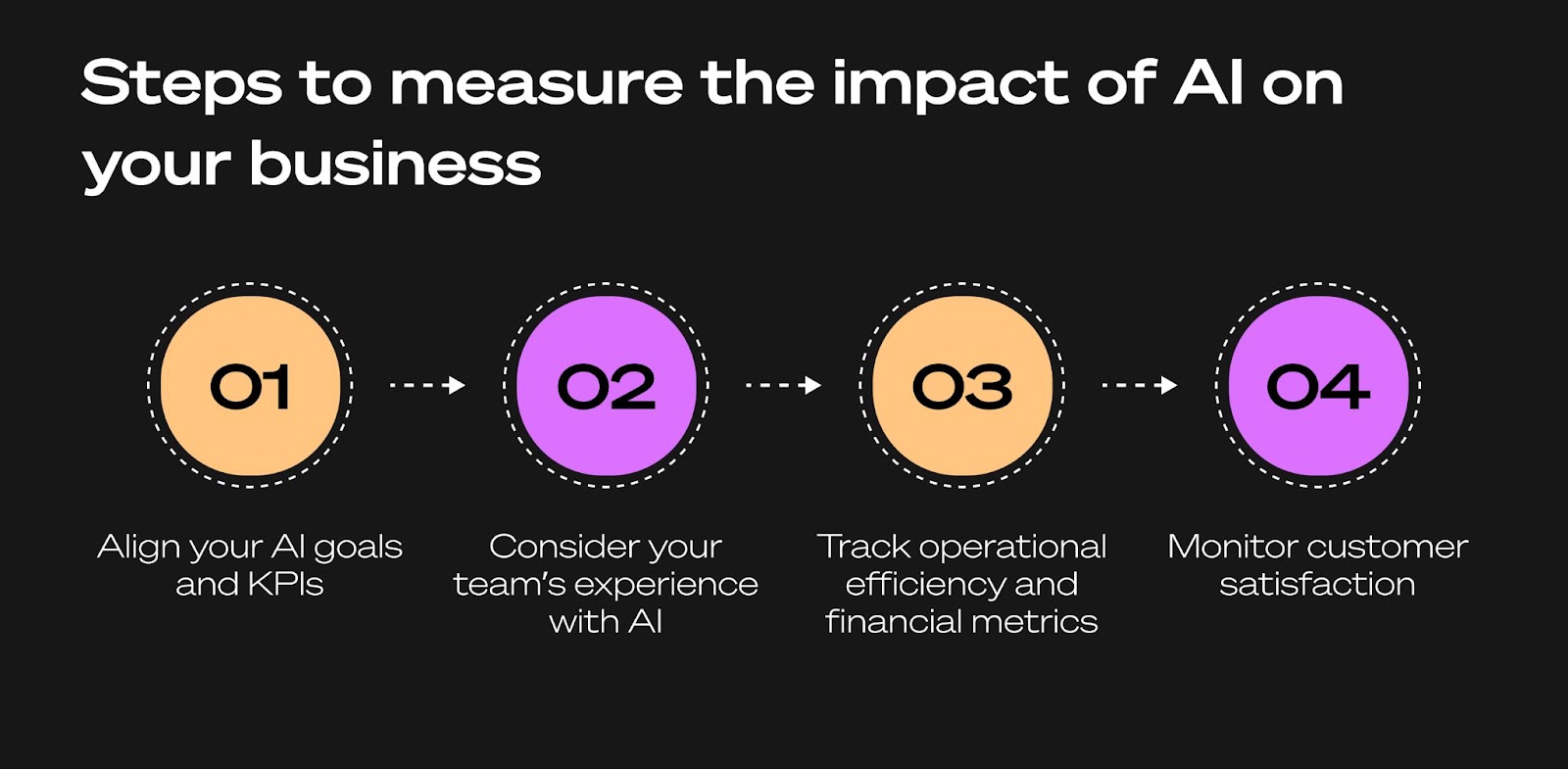
Tracking Key Metrics: From Sales Growth to Customer Satisfaction
To measure the success of AI tools for sales reps, managers should track key performance indicators (KPIs) that directly impact both sales and customer experience. Here are the top metrics to monitor:
- Sales Conversion Rates: Track the percentage of leads that turn into actual sales. This helps gauge how effective your AI tools are in guiding customers through their buying journey.
- Customer Retention: Measure how well you're retaining customers over time. AI-driven tools can help identify repeat buyers and provide insights into improving loyalty programs or personalized offers.
- Average Order Value (AOV): Monitor the average value of each customer’s purchase. AI tools for sales reps can highlight opportunities for upselling or cross-selling, boosting the overall value of each transaction.
- Sales Rep Performance: Use AI to track individual sales rep metrics, such as the number of deals closed, sales conversion rates, and response times. This helps identify top performers and areas for improvement.
- Customer Satisfaction: Track customer feedback and satisfaction scores to understand how well your AI tools are enhancing the customer experience.
By consistently tracking these KPIs, managers can fine-tune their strategies, optimize sales processes, and ensure their team is using AI to its full potential.
Real-Time Data and Performance Dashboards
Real-time data and performance dashboards have become essential tools for sales managers looking to keep track of their team’s progress and performance. With AI-powered dashboards, managers can access up-to-the-minute insights into their sales team’s activities, enabling them to make quick adjustments when needed. These tools provide visibility into:
- Live Performance Tracking: Sales managers can view real-time metrics, such as the number of deals closed, sales conversion rates, and individual rep performance, all in one place.
- Instant Feedback: AI dashboards allow managers to track how well each sales rep is meeting their goals and targets. This visibility makes it easier to identify when a rep might need additional support or coaching.
- Agility in Decision-Making: With real-time data, managers can adjust tactics on the go. For example, if a particular rep is struggling to close deals, managers can shift focus to help them refine their approach or adjust their sales pitch.
- Goal Alignment: Managers can easily see whether their team is on track to meet monthly or quarterly targets, helping them maintain focus and motivation.
- Actionable Insights: Beyond just tracking performance, AI in retail dashboards offer insights into what’s working and what isn’t, helping managers optimize sales strategies and make data-driven decisions.
In conclusion, in order to stay competitive and boost sales, retail employees need the right tools. And it’s not about just having the latest tech. Rather, it's about using it strategically. With the right systems, sales reps can offer a more personalized experience, manage inventory better, and make their day-to-day tasks easier, all while keeping customers happy.
To get started, store managers should assess their current systems and see where AI can fit in. This could mean trying out new CRM tools, exploring apps that help with real-time customer interactions, or pushing for AI tools for sales reps that can make their work easier. The key is to start small, test, and build a case for broader use.
Looking for a practical solution to improve sales and customer service? Try Evoneer’s AI Assistant and see firsthand how it can optimize your sales process and streamline daily tasks.

.png)



















